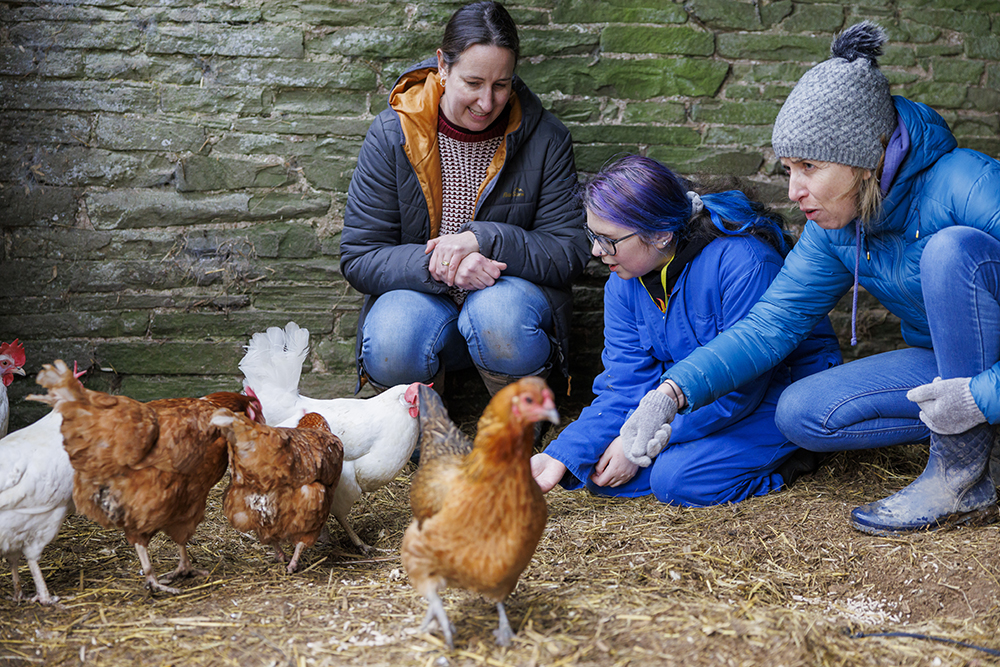Report finds blind and visually impaired are three times more likely to experience loneliness
The Fight for Sight/Vision Foundation report found 76% of blind and visually impaired respondents felt lonely some or all of the time, compared with 25% of the general population

25 April 2024
People who are blind and visually impaired are three times more likely to experience loneliness, according to a new report commissioned by Fight for Sight/Vision Foundation.
The Outside: insights into loneliness and isolation for blind and vision impaired people report was published by the charity last week and follows the classification of loneliness as a global health concern by the World Health Organization last year.
Produced by Abertay University, researchers conducted in-depth interviews with 18 blind and visually impaired people, combined with a survey that gained 162 responses, and a literature review of existing research and information.
Reporting the results, researchers found that participants experiencing low self-confidence and self-worth, which had caused them to withdraw from society, had exacerbated feelings of loneliness and isolation.
Findings detail that 76% of survey respondents felt lonely some or all of the time compared with 25% of the general population who feel lonely some or all of the time.
Furthermore, 44% of interviewees and 26% of survey respondents scored an eight or nine on the UCLA-3 Loneliness Scale.
Many respondents reported that they did not see or speak to anyone for days, that they felt unable to take part in the things that had previously brought them joy, and that they accepted chronic loneliness and isolation as part of life.
“I wouldn't want to be friends with me, probably. People get put off from hanging out with you, and who can blame them,” one respondent told researchers. Another said: “You’re like the last human alive.”
Writing in the foreword, Marsha de Cordova, MP for Battersea, called the report “a call to action for government, decision-makers and organisations.”
She highlighted: “Practical support exists but is patchy, and, in some areas, blind and partially sighted people have little or no easy access to support at all. There’s a pressing need to find new ways to make it easier for vision impaired people to engage in activities and experiences that improve wellbeing, reduce isolation and bring joy.”
De Cordova, who was born with nystagmus and is registered blind, added: “I know all too well from my own lived experience, and from speaking to my constituents how crucial access to emotional support is and having people who understand.”

Next steps
The report, authored by Dr Mhairi Thurston and Craig Dunlop, identifies areas and initiatives designed to improve experiences for blind and visually impaired people. As a charity that funds projects designed to improve life for blind and visually impaired people, Fight for Sight/Vision Foundation has said that it “can and will invest.”
Identified areas of support include: a more holistic, consistent approach to emotional support at the point of diagnosis and for ongoing support with anxiety and
depression related to vision loss; renewed efforts to ensure that visually impaired people can connect with others and have access to tools and resources to gain confidence; and a better appreciation of how life events, including national events like pandemics and lockdowns, might be made harder for someone with vision loss.
It also includes identifying creative, flexible and practical ways for visually impaired people to get out and about; and more data focusing on blind and visually impaired people, alongside a deeper understanding of the ways that different identities and aspects of intersectionality impact how blind and visually impaired people experience loneliness and isolation.
Following the findings of the report, to date the charity is funding 18 projects and investing £480,000. It confirmed that it has plans to match this in the next financial year also.
Director of impact and external affairs at Fight for Sight/Vision Foundation, Eleanor Southwood, said: “This report helps us understand the lived experiences of loneliness and isolation for blind and vision impaired people. With moving first-hand accounts from interviewees at its heart, it creates a compelling case for change, and we hope it will inform and inspire action and solutions that make a difference.”
The full report, Outside: insights into loneliness and isolation for blind and vision impaired people, is available to read on the Fight for Sight/Vision Foundation website.
Advertisement


Comments (0)
You must be logged in to join the discussion. Log in